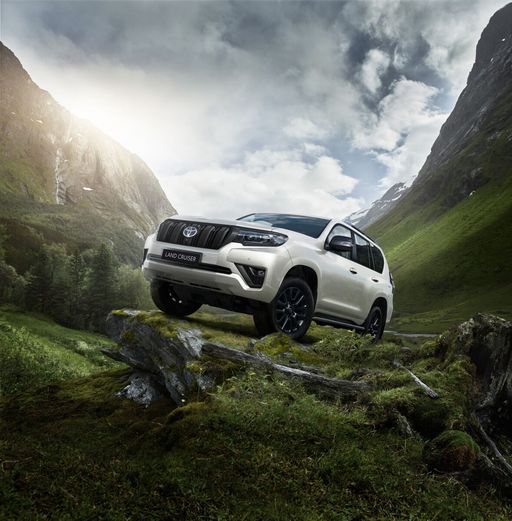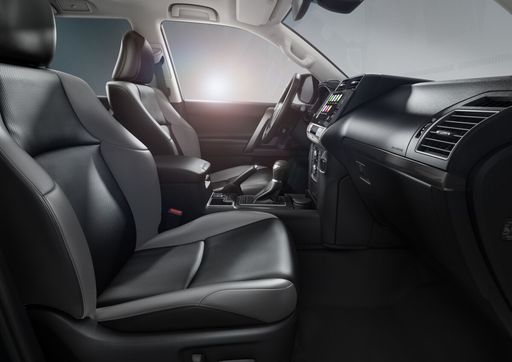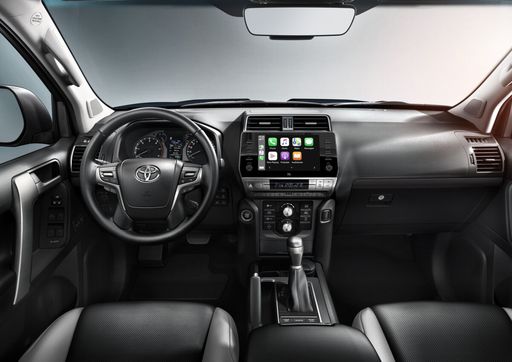Peugeot 208 VS Toyota Land Cruiser – Specs, Efficiency & Price Comparison
Which model is the better choice – the Peugeot 208 or the Toyota Land Cruiser? We compare performance (156 HP vs 205 HP), boot capacity (309 L vs 742 L), efficiency (14 kWh4.70 L vs 10.30 L), and of course, the price (19700 £ vs 58300 £).
Find out now which car fits your needs better!
The Peugeot 208 (Hatchback) is powered by a Petrol MHEV, Petrol or Electric engine and comes with a Automatic or Manuel transmission. In comparison, the Toyota Land Cruiser (Off-Roader) features a Diesel engine and a Automatic gearbox.
When it comes to boot capacity, the Peugeot 208 offers 309 L, while the Toyota Land Cruiser provides 742 L – depending on what matters most to you. If you’re looking for more power, you’ll need to decide whether the 156 HP of the Peugeot 208 or the 205 HP of the Toyota Land Cruiser suits your needs better.
There are also differences in efficiency: 14 kWh4.70 L vs 10.30 L. In terms of price, the Peugeot 208 starts at 19700 £, while the Toyota Land Cruiser is available from 58300 £.
Compare all the key specs now and find out which model fits your lifestyle best!
Peugeot 208
The Peugeot 208 exudes a distinctive French charm, combining sleek lines with an assertive stance on the road. Inside, it offers a modern and sophisticated cabin, complete with intuitive technology and high-quality finishes to enhance the driving experience. Its agile handling and efficient performance make it a delightful choice for both city commuting and longer journeys.
details @ www.media.stellantis.com
@ www.media.stellantis.com
 @ www.media.stellantis.com
@ www.media.stellantis.com
 @ www.media.stellantis.com
@ www.media.stellantis.com
 @ www.media.stellantis.com
@ www.media.stellantis.com
Toyota Land Cruiser
The Toyota Land Cruiser is renowned for its robust durability and exceptional off-road capabilities. Its design combines a rugged exterior with a comfortable and functional interior, appealing to both adventure seekers and city drivers. The vehicle's reliability and advanced technology make it a popular choice for those who require a dependable SUV that can handle a variety of terrains with ease.
details @ Toyota
@ Toyota
 @ Toyota
@ Toyota
 @ Toyota
@ Toyota

|

|
|
|
|
Costs and Consumption |
|
|---|---|
|
Price
19700 - 35000 £
|
Price
58300 - 78400 £
|
|
Consumption L/100km
4.7 - 5.4 L
|
Consumption L/100km
10.30 L
|
|
Consumption kWh/100km
14 - 16.1 kWh
|
Consumption kWh/100km
-
|
|
Electric Range
363 - 410 km
|
Electric Range
-
|
|
Battery Capacity
46 - 51 kWh
|
Battery Capacity
-
|
|
co2
0 - 121 g/km
|
co2
272 g/km
|
|
Fuel tank capacity
44 L
|
Fuel tank capacity
80 L
|
Dimensions and Body |
|
|---|---|
|
Body Type
Hatchback
|
Body Type
Off-Roader
|
|
Seats
5
|
Seats
5
|
|
Doors
5
|
Doors
5
|
|
Curb weight
1165 - 1530 kg
|
Curb weight
2410 - 2550 kg
|
|
Trunk capacity
265 - 309 L
|
Trunk capacity
130 - 742 L
|
|
Length
4055 mm
|
Length
4925 mm
|
|
Width
1745 mm
|
Width
1980 mm
|
|
Height
1430 mm
|
Height
1935 mm
|
|
Payload
380 - 430 kg
|
Payload
600 - 690 kg
|
Engine and Performance |
|
|---|---|
|
Engine Type
Petrol MHEV, Petrol, Electric
|
Engine Type
Diesel
|
|
Transmission
Automatic, Manuel
|
Transmission
Automatic
|
|
Transmission Detail
Dual-Clutch Automatic, Manual Gearbox, Reduction Gearbox
|
Transmission Detail
Automatic Gearbox
|
|
Drive Type
Front-Wheel Drive
|
Drive Type
All-Wheel Drive
|
|
Power HP
101 - 156 HP
|
Power HP
205 HP
|
|
Acceleration 0-100km/h
8.3 - 10.9 s
|
Acceleration 0-100km/h
-
|
|
Max Speed
150 - 200 km/h
|
Max Speed
170 km/h
|
|
Torque
205 - 270 Nm
|
Torque
500 Nm
|
|
Number of Cylinders
3
|
Number of Cylinders
4
|
|
Power kW
74 - 115 kW
|
Power kW
151 kW
|
|
Engine capacity
1199 cm3
|
Engine capacity
2755 cm3
|
General |
|
|---|---|
|
Model Year
2023 - 2024
|
Model Year
2024
|
|
CO2 Efficiency Class
C, D, A
|
CO2 Efficiency Class
G
|
|
Brand
Peugeot
|
Brand
Toyota
|
Peugeot 208
A Glimpse into the Future: The New Peugeot 208
The Peugeot 208, with its sleek design and innovative features, continues to set benchmarks in the automotive industry. As a hatchback, it seamlessly blends style with practicality, offering the perfect solution for urban driving and long-distance travels alike. In this article, we delve into the technical details and innovations that distinguish the latest iterations of the Peugeot 208.
Engine Options: Efficiency Meets Performance
The Peugeot 208 provides an array of engine options catering to different driving preferences. Featuring both petrol Mild-Hybrid technology and full electric powertrains, it offers a versatile range designed to accommodate eco-conscious drivers as well as those who prioritise performance.
With power outputs ranging from 101 PS to 156 PS, and a torque span of 205 Nm to 270 Nm, these machines are meticulously engineered to provide thrilling yet efficient drives. The petrol versions utilise a three-cylinder 1199 cm³ engine, optimising fuel consumption between 4.7 and 5.4 L/100km, while the electric e-208 models boast an impressive range of up to 410 km on a single charge.
Advanced Transmission Systems
The Peugeot 208 models come equipped with an advanced automatic transmission system, employing either a dual-clutch automatic gearbox or a manual transmission, depending on the chosen variant. These systems guarantee smooth gear transitions, thus enhancing driving pleasure and overall efficiency.
Performance and Environmental Considerations
From a performance standpoint, the Peugeot 208 impresses with its ability to accelerate from 0 to 100 km/h in between 8.3 to 10.9 seconds, depending on the model chosen. This level of performance is complemented by a top speed ranging from 150 to 200 km/h, ensuring that the 208 is more than capable of holding its own on the motorway.
With environmental consciousness at the forefront, the vehicle's CO2 efficiency class ranges from A to D, further establishing the Peugeot 208 as a responsible option for modern drivers keen on reducing their carbon footprint.
Comfort and Practicality: A Class Act
The interior of the Peugeot 208 reflects its exterior's stylish flair. It comfortably seats five passengers and offers a boot capacity of 265 to 309 litres, accommodating both city commutes and weekend getaways. Advanced comfort features and a state-of-the-art infotainment system ensure that rides are as enjoyable for passengers as they are for the driver.
Cost Considerations
The Peugeot 208 manages to strike a remarkable balance between cost efficiency and luxury. With prices ranging from €22,950 to €40,825, there is a variant to suit most budgets while still providing a premium experience. Additionally, the monthly costs and costs per kilometre are kept in check, making it an economically sound choice in the long term.
Dimensions and Design: Compact yet Spacious
Measuring 4,055 mm in length, 1,745 mm in width, and 1,430 mm in height, the Peugeot 208 maintains a compact profile that is perfectly suited to tight urban environments. Despite its manageable size, it offers ample space inside, thanks in part to clever design and engineering.
Conclusion: A Future-Proof Choice
The Peugeot 208 is a testament to modern automotive innovation. Whether powered by traditional engines or fully electric powertrains, it consistently delivers on performance, efficiency, and style. The combination of cutting-edge technology and sustainable practices places the Peugeot 208 as a forward-thinking choice for drivers seeking a vehicle that epitomises the best of contemporary motoring.
Toyota Land Cruiser
Introducing the Toyota Land Cruiser: A Legend Reinvented
The Toyota Land Cruiser is a name synonymous with reliability, durability, and off-road prowess. The latest iterations continue this legacy while incorporating cutting-edge technology and refined engineering to meet the demands of modern adventurers. Whether you're navigating rugged terrains or cruising city streets, the Land Cruiser promises an unparalleled driving experience.
Innovative Engineering and Powertrain
Under the bonnet, the Land Cruiser offers a 2.8-litre D-4D diesel engine, delivering an impressive 204 PS. This robust engine ensures a blend of power and efficiency, capable of handling any terrain with ease. Available in both manual and automatic transmissions, the vehicle caters to a wide range of driving preferences. With a torque ranging from 420 to 500 Nm, it provides enough grunt to tackle the most challenging conditions.
Performance and Efficiency
The Land Cruiser exhibits remarkable performance, accelerating from 0 to 100 km/h in just 9.9 seconds in select variants. Despite its formidable capabilities, the vehicle manages to maintain a commendable fuel consumption rate, ranging from 8.7 L/100km to 13.4 L/100km, depending on the configuration. The model achieves a maximum speed of 175 km/h, demonstrating its competence on both highways and off-road trails.
Design and Dimensions
Standing at a length between 4395 mm and 4920 mm, the Land Cruiser strikes a balance between robust stance and practical urban driving. Its width ranges from 1885 mm to 1980 mm, and it features a height between 1830 mm and 1870 mm. The SUV offers both three-door and five-door configurations, accommodating diverse lifestyle needs. Its spacious interior can be configured to seat between five to seven passengers, ensuring comfort on long journeys.
Off-Road Capability and Utility
Renowned for its off-road credentials, the Land Cruiser is equipped with a sophisticated all-wheel-drive system. It features a high ground clearance, allowing it to traverse uneven terrains without difficulty. The vehicle's payload capacity ranges from 495 kg to 770 kg, and its ample boot space — ranging from 104 L to 1151 L — caters to adventurous excursions as well as everyday practicalities.
Technological Features and Innovations
The latest Land Cruiser models are outfitted with advanced technological features designed to enhance both comfort and safety. From state-of-the-art infotainment systems to cutting-edge driver assistance technologies, this SUV ensures a connected and secure driving experience. With a range of trim levels available, including Executive and First Edition variants, the Land Cruiser offers a suite of luxury amenities tailored to discerning drivers.
Sustainability and Environmental Considerations
While the Land Cruiser is engineered for performance, Toyota also takes environmental impact into account. The models feature CO2 emissions ranging from 227 g/km to 288 g/km and a fuel efficiency rating classified under CO2-efficiency class G. These efforts reflect Toyota's commitment to reducing the environmental footprint of its vehicles while delivering unparalleled capability.
Conclusion: A Timeless Companion
The Toyota Land Cruiser remains an indomitable force in the world of four-wheel drives, combining enduring reliability with modern innovation. Whether it's exploring untamed wilderness or making a statement on urban roads, the Land Cruiser stands as a testament to Toyota’s engineering excellence. For adventurers seeking uncompromised performance and luxury, the Land Cruiser is poised to be a steadfast companion for years to come.
The prices and data displayed are estimates based on German list prices and may vary by country. This information is not legally binding.
